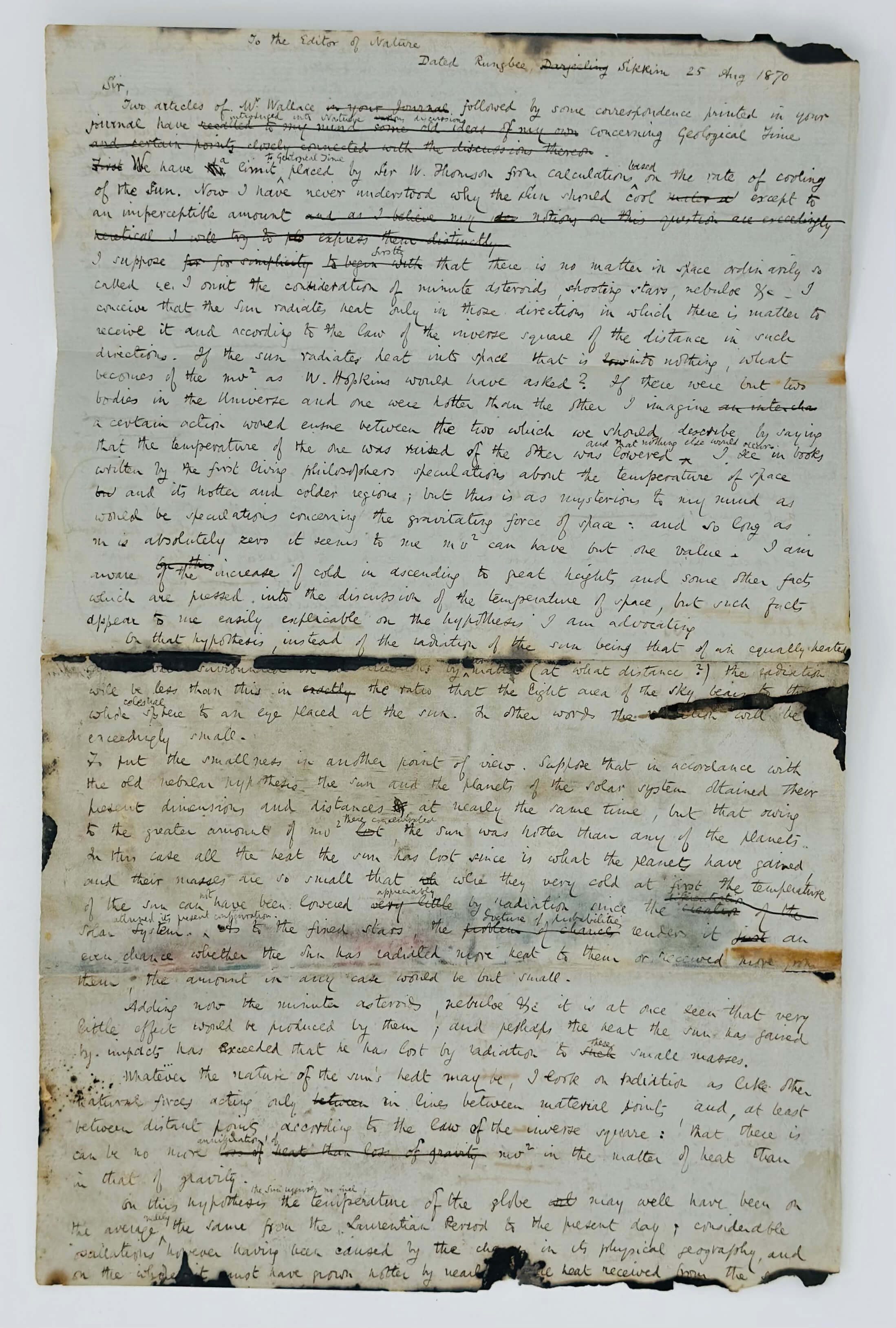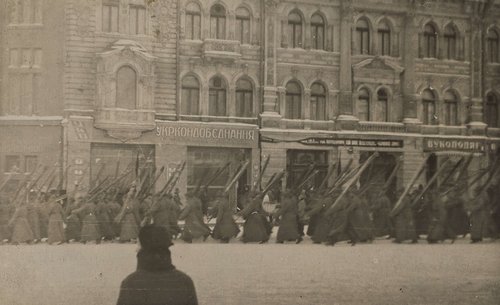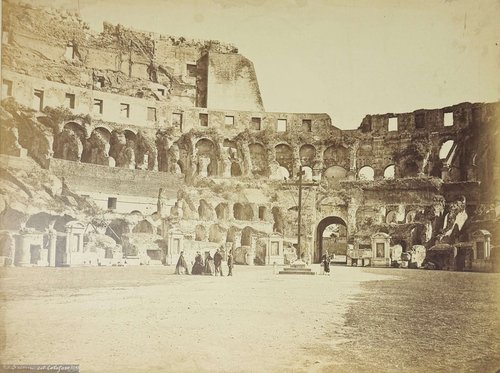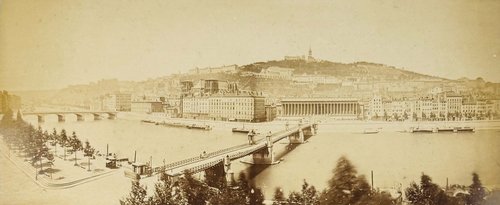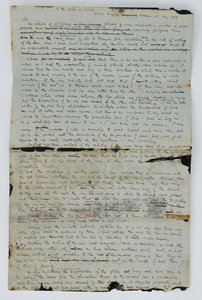
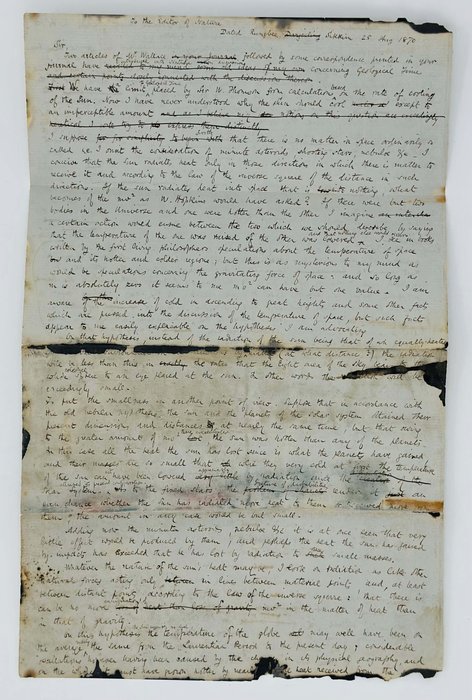
#MC11
1870
Folio (ca. 33,5x21 cm). 2 pp., apparently unfinished. Brown ink on pale blue laid paper. Fold marks, ink stains on folds, minor chipping on the top and bottom margins, paper slightly soiled, overall a good manuscript.Unsigned extensive manuscript draft letter by a prominent British botanist Charles Baron Clarke polemizing with the article “The Measurement of Geological Time” by Alfred Wallace published in the “Nature” journal in 1870 (17 Feb., pp. 399-401; 3 March, pp. 452-455). The letter discusses views of Charles Darwin, Thomas Huxley, Charles Lyell, Sir William Thompson, and others, as well as a prospective of future development of this question.
“Two articles of Mr. Wallace followed by some correspondence printed in your journal have introduced into “Nature” discussions concerning Geological Time. <…> Prof. Huxley estimates that the whole […] series containing traces of animal life might have been deposited in the one hundred million years allowed by Sir W. Thompson, at an average rate of 1/83 of an inch per annum. But Prof. Huxley is probably the last man to give up the Darwinian Theory, and the vital point of the Darwinian Theory is the proportion which the gaps in the geological time bear to the recorded periods. W. Hopkins shewed that we must be prepared to allow the record to be as imperfect as Mr. Darwin imagined in order that the Darwinian Theory could hold water and his dangerous attack on Darwinism was directed to demonstrate that the record was probably not so extremely imperfect. If we want a million years for the record of the stratified rock, a Darwinian will want ten thousand million years to fill up the gaps. <…>
I think (in opposition to some of your correspondents) that because we can only get imperfect views of geological time that is no reason why we should not do our utmost to diminish that imperfection continually. And especially I think the attempts of Sir Charles Lyell to find[?] and inferior limit to the number of years […] which the observed geological changes can possibly have occurred according to the laws of nature now seen in operation, a very valuable and instructive subject for reflection…”
Charles Baron Clarke was an eminent colonial botanist, traveller and plant-hunter, a major contributor to the collections of the Royal Botanic Gardens Kew and to the “Flora of British India” (Ed. By J.D. Hooker, London, 1875-97, 7 vols.). For over twenty years Clarke served as the Inspector of Schools in Bengal (1866-87), in 1869-1871 he acted as Superintendent of the Calcutta Botanic Garden. During his service in India he widely travelled across the region collecting plant species and visiting Darjeeling, Nilgiri Mountains, Chittagong, Punjab Himalaya, British Bhutan, Nepal, Kashmir, the Karakoram Mountains and others. Clarke was president of the Linnean Society in 1894-96, a fellow of the Royal Society since 1882. He worked at Royal Botanic Gardens Kew from 1887 until his death in 1906.

